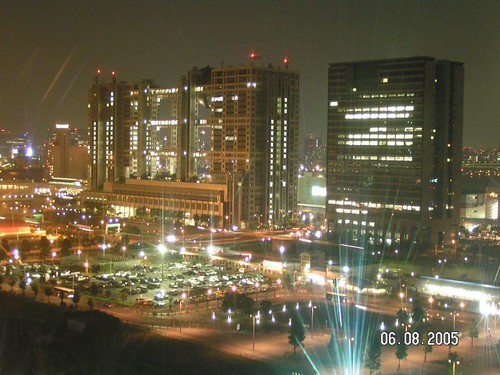The 'irresistible cocktail' that sealed Japan's fate
July 31, 2005 The Age
Saving lives was just one reason for dropping the bomb, according to a new book. Paul Heinrichs examines the arguments.
Could the fate of Hiroshima and Nagasaki have been avoided - or was the nuclear bomb's use justifiable in the context?
In the nuclear weapons debate, where opinions are highly polarised, there is an interesting new perspective. British TV drama and documentary director Stephen Walker has written an account of the three-week lead-up to the first dropping of the nuclear bomb in Shockwave. The Countdown to Hiroshima.
Following his earlier 60-minute documentary for the BBC and History Channel on the countdown's final 24 hours, the book focuses on each person's role.
Where he deals with US Secretary for War Henry Stimson's final approval on July 25, 1945, for the bomb to be dropped, Walker makes a striking and probably controversial statement.
"Of course, the decision was always inevitable," he writes. "So inevitable, perhaps, that it could hardly be called a decision. Everything conspired to that end. There were so many urgent reasons to drop the bomb. Together they made an irresistible cocktail."
Walker, 43, explained why. "The most obvious reason why the bomb was dropped, the one that everybody tells, was to save lives - to win the war decisively and quickly and save lives."
He cites his research into the minutes of a critical meeting on June 18, 1945, of the US Joint Chiefs of Staff with the recently appointed President Truman (following the death of Roosevelt in April 1945) to discuss the invasion of Japan.
It was two months after the German capitulation, but finishing off Japan was proving incredibly difficult. The meeting took place as the final battles were being fought for Okinawa, the last Japanese outpost before the home islands.
Although only a small island, Okinawa took three months of vicious, hand-to-hand fighting and the loss of 12,000 American and 107,000 Japanese soldiers, plus an estimated 100,000 Japanese and Okinawan civilians.
The plan was first for a massive invasion of Kyushu, the southern island, on November 1, followed four months later by a second invasion on the plains near Tokyo. More than 750,000 Americans would be involved. At issue was the number of casualties expected.
Walker said that although there is little that is specific - one estimate by General George Marshall was a loss of 31,000 men killed or wounded in the first 30 days - "they are talking about very serious casualties".
He said it was clear Truman reluctantly gave his agreement for the invasion plan "and the only recourse he knew or believed would have been the bomb to prevent that slaughter from happening.
"It is also obvious that whether or not the bomb did save lives ultimately - I'm not into that equation business - it clearly ended the war more quickly, and revisionist historians who say that it didn't are fools, in my opinion.
"It's obvious - you drop a bomb and nine days later Japan has surrendered. That would not have happened without the bomb."
Walker does not ignore other elements. He believes the US was also seeking to win the war quickly, and with a demonstration of nuclear deterrent to Stalin, because it feared Russia was poised to send troops across the border into Japanese-occupied Manchuria (it was), possibly into South-East Asia, and even threaten Australia.
After seeing much of Europe swallowed by the Soviets in the wash-up of the war there, the US did not want a repeat in Asia, Walker said.
"It was critical to Truman to drop that bomb and end that war quickly before the Russians could do it, and at the same time, show the Russians what an atom bomb looked like," Walker said.
As evidence of US thinking, he cites a document he found in the US National Archives, written within two weeks of Hiroshima and Nagasaki, which contains a list of every major Russian city, its area, population - and the number of nuclear bombs required to wipe them all out. The answer was 204.
"There must have been a top-secret target committee somewhere in the Pentagon that had been put to work to find out how destructive these bombs could be when used - if used - on the Soviets," he said.
Asked if the bomb had been dropped gratuitously, Walker said: "I wouldn't say the bomb was dropped because they hated the Japanese but I would say the bomb was able to be dropped because they hated the Japanese - a slightly different point.
"Understandably. You know, the Japanese started the war, they had the most horrific record on POWs, which had already started to come out in a really big way.
"There was, absolutely without question, an orchestrated campaign, particularly in the American media, to caricature the Japanese as a slightly sub-human race."
In considering the atomic bomb's use, Walker likes to look at what might have happened had it not been used, given the enormous process and cost of preparations of the bomb.
"Suppose the war had gone on and American soldiers had died - and other Allies - and the electorate turned around said said 'My God, you've spent $US2billion of taxpayers' money on a weapon that could have ended this war, quite possibly, and you chose not to use it because you were squeamish about the Japanese?'
"Put yourself in that mindset - how can you stop it?"
Add to that the power and charisma of the military administrator of the project, General Leslie Groves, "a tough sonofabitch" who "for a few weeks here was the most powerful man on earth".
"This bomb was his baby. He had made it happen. Everybody was in thrall to this guy. He was the puppeteer behind the scenes. Truman, frankly, was a message boy, really. He did what he had to do, but Groves was punching it through," said Walker.
Groves' only defeat was Japan's ancient capital Kyoto, which he described as Stimson's "pet city" - Stimson had been there twice, and ordered it off the list of targets. Hiroshima took its place at the head of the queue.


